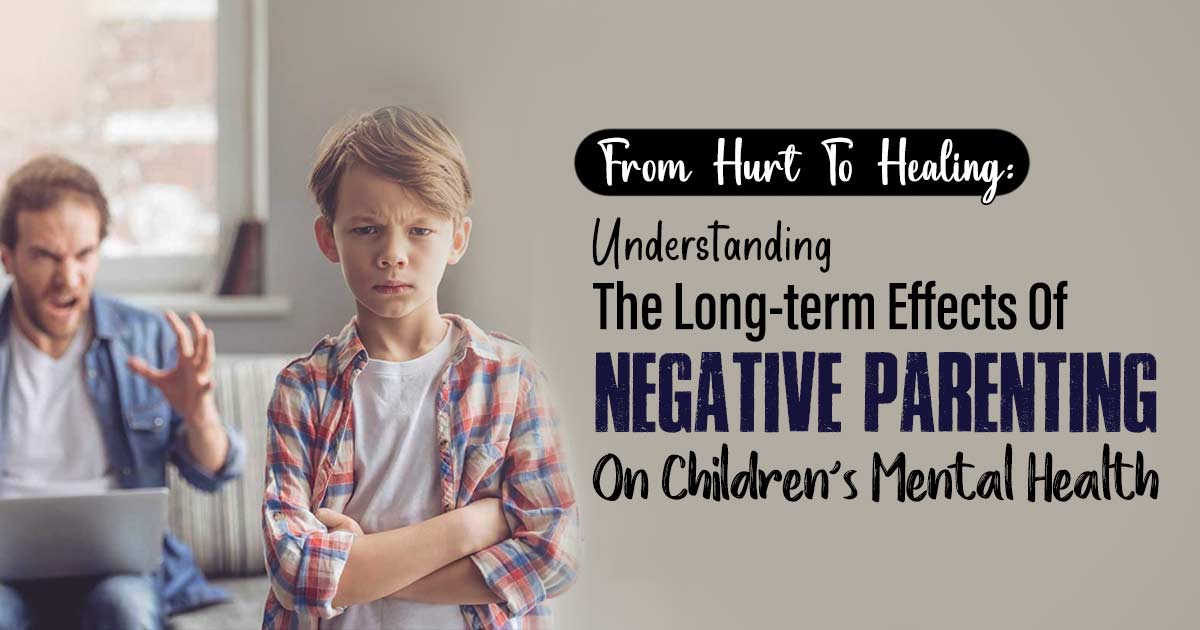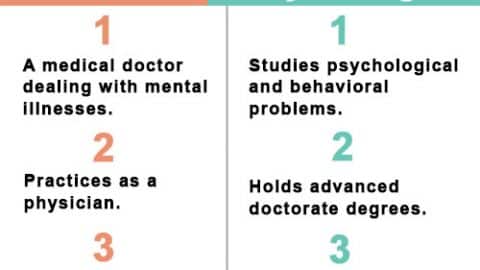Parenting is one of the most challenging and rewarding roles a person can undertake. It plays a significant role in shaping a child’s development, including their mental health. When parents make mistakes or engage in ineffective parenting practices, it can have profound and lasting effects on their child’s mental well-being. This essay explores how harmful parenting impacts a child’s mental health and emphasizes the importance of positive parenting practices.
Understanding Parenting Styles
Before delving into how negative parenting impacts a child’s mental health, it’s essential to understand various parenting styles and their potential implications for a child’s mental health. Researchers have identified several parenting styles, with authoritative, authoritarian, permissive, and neglectful being the four primary categories.
1. Authoritative parenting is characterized by warmth, clear boundaries, and open communication. Parents set reasonable expectations and enforce rules with empathy and understanding.
2. Authoritarian parenting is strict, with an emphasis on obedience and discipline. These parents often lack warmth and are quick to impose consequences for rule-breaking.
3. Permissive parenting is characterized by high warmth but minimal discipline. These parents are lenient and often fail to set clear boundaries for their children.
4. Neglectful parenting involves parents who are emotionally detached and uninvolved in their child’s life. They may provide minimal care and supervision.
The Impact of Incorrect Parenting On A Child’s Mental Health
The aftermath of how wrong parenting impacts a child’s mental health encompasses several mental health conditions:
1. Low Self-esteem And Self-worth:
When parents employ authoritarian or neglectful parenting styles, children may develop low self-esteem. Authoritarian parents’ constant criticism can make children doubt their abilities, while neglectful parents’ lack of attention can lead to feelings of worthlessness.
2. Anxiety And Depression:
Children raised in high-stress environments with inconsistent parenting are more likely to develop anxiety and depression. Uncertainty and unpredictability in their relationship with their parents can contribute to these mental health issues.
3. Aggression And Conduct Disorders:
Children exposed to harsh discipline without emotional support are at risk of developing aggressive behavior and conduct disorders. Authoritarian parenting often leads to heightened aggression and defiance as children rebel against strict rules.
4. Attachment Issues:
Neglectful parenting can result in attachment issues. Children may struggle to form healthy attachments with others because they have not experienced secure attachment with their primary caregivers.
5. Substance Abuse:
Parental neglect, lack of supervision, or permissive parenting can increase the likelihood of children experimenting with drugs or alcohol at a young age. This can lead to substance abuse problems later in life.
6. Academic Struggles:
Parents who do not provide support and encouragement for their child’s education can negatively impact their academic performance. Low grades and academic struggles can lead to stress and anxiety.
7. Eating Disorders:
Unrealistic expectations and criticism about a child’s appearance or weight can contribute to the development of eating disorders like anorexia or bulimia.
8. Relationship Difficulties:
Children who experience inconsistent or harmful parenting may have difficulties forming healthy relationships in adulthood. They may struggle with trust issues and exhibit emotional volatility in their relationships.
The Role of Negative Parenting In Adulthood Mental Health
Childhood experiences have a profound impact on a person’s mental health throughout their life. Children’s brains are highly malleable and responsive to their environment, and negative experiences during childhood can leave lasting scars. Adverse Childhood Experiences (ACEs), such as neglect, abuse, or witnessing domestic violence, can significantly increase the risk of mental health issues in adulthood.
However, it’s important to note that not all children who experience negative parenting develop mental health problems, and not all mental health problems can be traced back to parenting. Genetics, environmental factors, and individual resilience also play significant roles in a child’s mental health.
Preventing Harmful Parenting
Parents have the power to positively influence their child’s mental health by adopting nurturing and effective parenting practices. Here are some ways to prevent harmful parenting:
- Self-awareness: Reflect on personal experiences and biases to break harmful generational patterns.
- Positive Discipline: Use clear communication and teaching-focused methods instead of harsh punishment.
- Open Communication: Encourage honest expression of thoughts and feelings without judgment.
- Consistency And Routine: Establish stable boundaries for your child’s security.
- Emotional Support: Be responsive and available during challenging times.
- Model Healthy Behavior: Set a good example for the values you want to instill.
- Balanced Indulgence: Allow occasional treats and indulgences in a healthy, balanced manner.
- Good Mannerisms: Teach and reinforce polite and respectful behavior.
- Check Bad Behavior: Address and correct negative behaviors through constructive means.
- Seek Help When Needed: Don’t hesitate to get professional assistance or parenting classes when struggling.
Parenting is a complex and challenging endeavor that significantly influences a child’s mental health and overall well-being. Wrong or harmful parenting impacts a child’s mental health, leading to a range of mental health issues, including low self-esteem, anxiety, depression, aggression, and attachment problems.
It’s essential for parents to be self-aware, practice positive discipline, and provide emotional support to foster their child’s mental health. Therefore, by adopting nurturing and effective parenting practices, parents can help create a positive and supportive environment that promotes their child’s mental well-being and sets them on a path to a healthier, happier life.




















